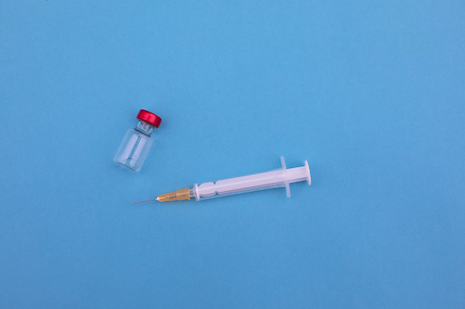The vaccine that could revolutionise cancer treatment
mRNA vaccines could help millions battling cancer

With the onset of the COVID-19 pandemic, mRNA vaccines found themselves thrust into the spotlight. However, they are not a new concept. BioNTech and Moderna researchers alike were working on cancer vaccines before the pandemic, and used this experience to aid in developing a vaccine against SARS-CoV-2. Now, as life begins to return to normal, the production of mRNA cancer vaccinations has resumed.
Unlike a regular vaccine, which aims to increase your immunity to a disease before you become infected, cancer vaccines are made to evoke an immune response towards an existing tumour, and are personalised to each patient. This is because cancer cannot be treated by a ‘one-size fits all approach’; even individual cells within a tumour contain a diverse variety of mutations, making it incredibly difficult to find a general cure. Therefore a personalised approach is likely to be the future of cancer treatment, and mRNA vaccines are paving the way.
The process begins by extracting a biopsy from the patient’s tumour, followed by sequencing to screen for any genomic mutations that could be responsible for the cancer. An algorithm is subsequently used to rank these mutations in order of importance, so that an mRNA sequence can be produced to specifically target the root of the cancer. Once injected into the patient, the mRNA sequence is taken up by dendritic cells which translate the code into tumour-specific antigens. These are presented to T-cells, evoking an immune response against the cancerous cells overexpressing these antigens. This offers a very specific mechanism for the degradation of cancerous tumours, decreasing the large number of side effects common with currently used immunotherapies.
There were, however, problems with this approach: mRNA is a notoriously unstable molecule, and thus designing a vaccine based on this chemistry has proved challenging. To overcome this, researchers made changes to the mRNA backbone, including new cap analogues, codon optimisations and nucleoside modifications, increasing the overall stability of the molecule. However, researchers were still challenged by safely getting the mRNA inside cells without its degradation. The solution was to insert the mRNA molecules into lipid nanoparticles, which can bypass the immune system’s defence mechanisms. Another key modification includes the use of alternate nucleosides, which do not alter the function of the mRNA but allow it to almost completely evade immune responses. These structural and formulation changes have meant that mRNA can now be safely and easily administered.
As we observed during the pandemic, getting vaccinations approved for public use can be a lengthy process due to strict regulations. This poses a major issue to personalised vaccine development since each vaccine would have to undergo months of clinical trials, which isn’t feasible when the vaccine is personalised to the individual patient. Fortunately, BioNTech has received a ‘fast-track’ designation with the FDA for one of their mRNA-based melanoma treatments and future vaccines could likely follow a similar protocol - allowing the biopsy to vaccination process to be a matter of a few weeks.
If approved and popularised, mRNA cancer vaccines could revolutionise cancer treatment and transform the lives of millions. The potential for this therapy is very exciting, and is definitely something to look out for in the coming months.
 News / Proposed changes to Cambridge exam resits remain stricter than most7 May 2024
News / Proposed changes to Cambridge exam resits remain stricter than most7 May 2024 News / Cambridge students set up encampment calling for Israel divestment6 May 2024
News / Cambridge students set up encampment calling for Israel divestment6 May 2024 Features / Cambridge punters: historians, entertainers or artistes? 7 May 2024
Features / Cambridge punters: historians, entertainers or artistes? 7 May 2024 Sport / The ‘netball girl’: myth or reality?7 May 2024
Sport / The ‘netball girl’: myth or reality?7 May 2024 Theatre / A nuanced and neurodivergent Carrie comes to the ADC6 May 2024
Theatre / A nuanced and neurodivergent Carrie comes to the ADC6 May 2024





